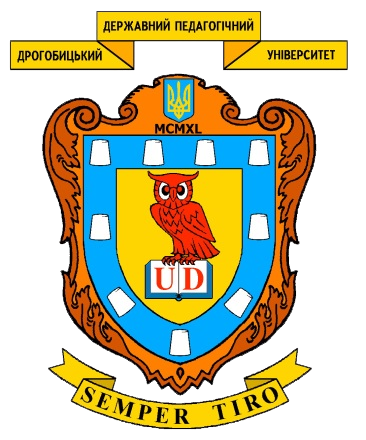PSYCHOLOGICAL PECULIARITIES OF TEENAGER’S IDENTITY DEVELOPMENT UNDER THE CONDITIONS OF A DYSFUNCTIONAL FAMILY
Keywords:
personality, identity, adolescence, dysfunctional family, conflict interaction.Abstract
The piece elucidates the important issues of sound family functioning as the most important and the most effective surrounding for personality socialization as far as the violation of family system functioning leads to the creation of the uncongenial climate for adolescent personality becoming. The main features of the development of the teenager identity under the conditions of dysfunctional family that is characterized by violation of family representation, interpersonal communication, mechanisms of family integration, role structure are analyzed. The article makes clear that dysfunctional family is the main reason of the building of the uncongenial climate or the socialization and for the achievement of personhood that acquires great significance in developmental age, when intensive socialization of self-consciousness and personal identity is happened. The problem of harmonization of family relations, facilitating the growth of dialogization of communication and partnership between parents and teenagers. A special emphasis is put upon psychological features and functions of conflict as specific method of interaction between children and parents under the condition of disharmonic family development. The frequency and duration of family conflicts inevitably lead to the appearance of neurotic symptomatology in teenagers. Negative influence of dysfunctional family on the development of stalky formation of child’s personality – self-construction, self-image, self-attitude, self-esteem, axiological sphere – all that forms personal identity as the feelings of self-identity and uniqueness. The perspectives of our investigation are the continuation studying of this issue in the direction of clarifying the parental influence on the socialization of teenager individuality and gender identity under the conditions of dysfunctional family; creation the socialization program that is concentrated on the activation of individual increasing parents and teenagers, acquirement psychological competence in achieving family interaction.
References
Буленко Т.В. Тенденції розвитку української сім’ї та її проблеми на сучасному етапі / Т.В. Буленко // Збірник наукових праць Інституту психології ім. Г.С. Костюка АПН України / за ред. С.Д. Максименка. – К., 2001. – Т. ІІІ, Ч. 4. – С. 20 – 24.
Городнова Н.М. Соціально-психологічні чинники становлення статево рольової ідентифікації підлітків : автореф. дис. … канд. психол. наук : 19.00.07 / Н.М. Городнова. – К., 2006. – 24 с.
Кікінежді О.М. Гендерна ідентичність в онтогенезі особистості : монографія / О.М. Кікінежді. – Тернопіль : Навчальна книга – Богдан, 2011. – 400 с.
Пезешкиан Н. Позитивная семейная психотерапия : семья как терапевт / Н. Пезешкиан ; [пер. с англ., нем.]. – М. : Издательство Март, 1996. – 336 с.
Радчук Г.К. Сімейне виховання. Освітній тренінг для батьків. Навчально-методичний посібник / Г.К. Радчук, О.В. Тіунова. – Тернопіль : Навчальна книга – Богдан, 2008. – 120 с.
Эйдемиллер Э.Г. Психология и психотерапия семьи / Э.Г. Эйдемиллер, В.В. Юстицкис. – [3-е изд.]. – СПб. : Питер, 2001. – 656 с.
Эриксон Э. Идентичность: юность и кризис / Э. Эриксон ; [пер. с англ. А.В. Толстых]. – М. : Прогресс, 1996. – 344 с.
Яблонська Т.М. Розвиток ідентичності дитини в системі сімейних взаємин : монографія / Т.М. Яблонська. – Суми : Вид-во СумДПУ імені А.С. Макаренка, 2013. – 444 с.







